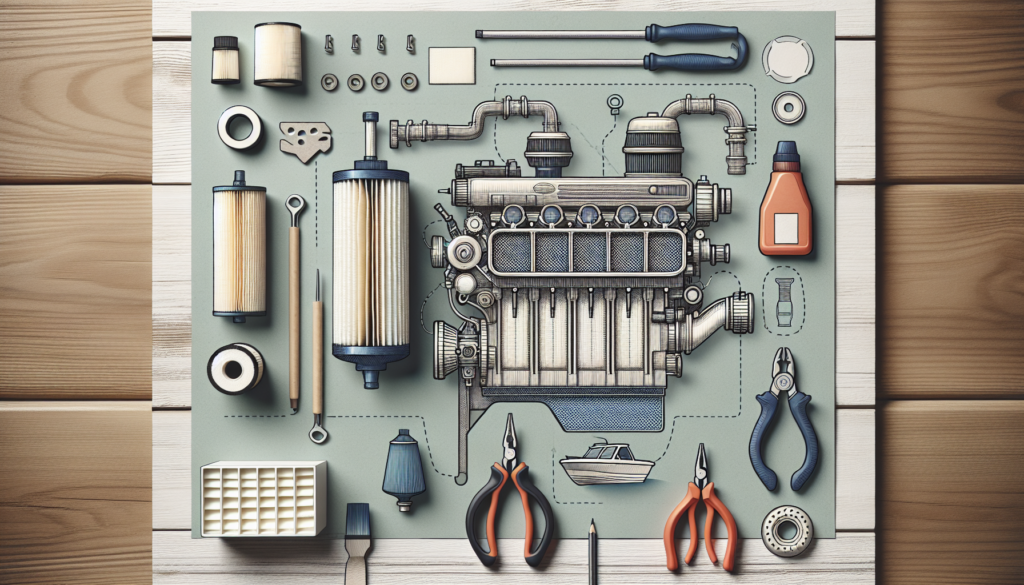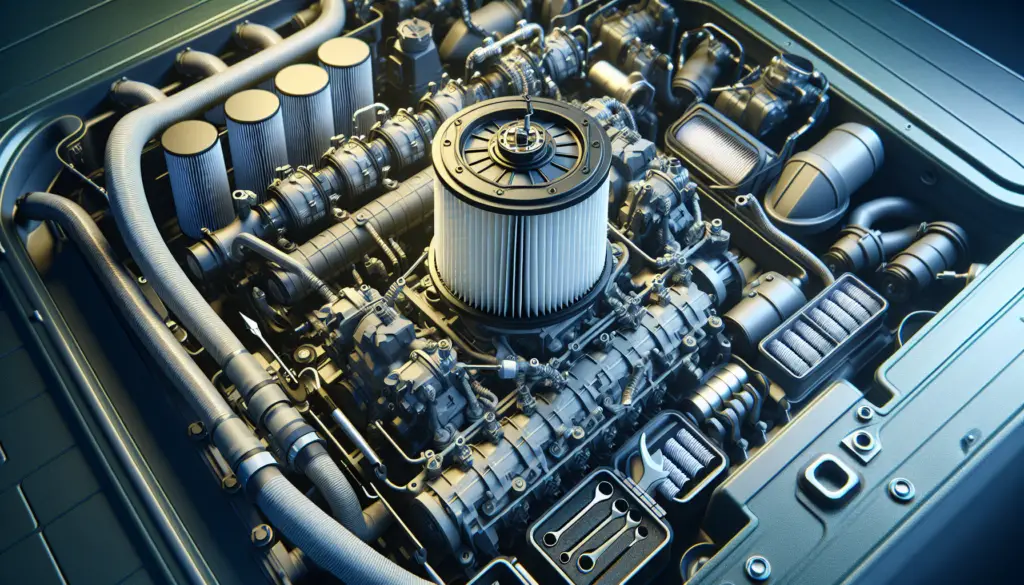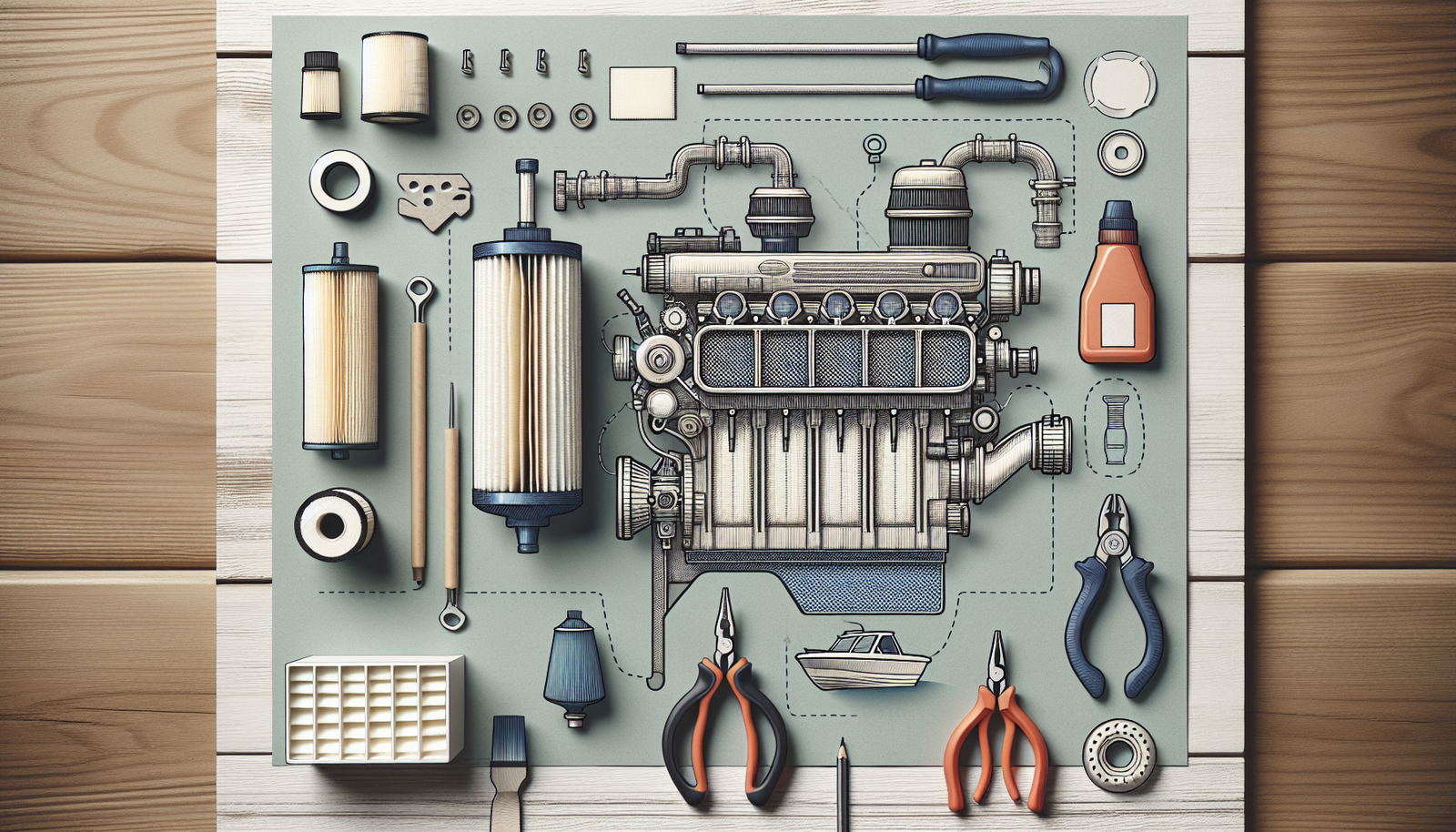You are a boat owner, you are aware that maintenance and replacing your boat engine’s filters are crucial activities for ensuring the optimal performance and longevity of your vessel. In the article “How to Maintain and Replace Your Boat Engine’s Filters for Maximum Efficiency”, you are guided through steps which include understanding types of filters, their specific functions, and practical tips on maintaining them correctly. This feature plays a pivotal part in keeping your boat afloat, so knowing how to handle them could not be more essential.

Understanding the Importance of Boat Engine Filters
A boat engine is akin to the heart of your vessel. Just like the heart purifies blood and pumps it to various parts of the body, the engine purifies the fuel, oil, and air it consumes and ensures the smooth operation of your boat. Indispensable for this purification process are the boat engine filters.
Role of engine filters in a boat
Just as you, boat engine filters have one main job – to keep unwanted particles out. They ensure that only clean air, oil, and fuel reach the engine, thereby preserving its health and longevity. By sieving out harmful contaminants, filters play an instrumental role in preventing damage to your engine components and maintain high engine performance.
Consequences of disregarding filter maintenance and replacement
Ignoring filter maintenance procedures can lead to a host of problems. Dirty or clogged filters can allow contaminants to enter the engine, resulting in accelerated wear and tear. If left unchecked, this could even lead to engine failure, which on a boat can be catastrophic. With filters, it’s always a case of ‘better safe than sorry’.
How filters affect efficiency and performance
When lubricated adequately with pure oil and fuel and fed with clean air, your boat’s engine runs smoothly and performs better. Adequate filtering leads to fewer emissions, increased fuel economy, and a longer engine lifespan. Remember, efficient filters are tantamount to an efficient engine.
Different Types of Boat Engine Filters
To ensure optimum performance, your boat engine employs various types of filters, each with a specific function.
Fuel filters
Fuel filters protect your engine by filtering out impurities present in the fuel. These impurities, if unfiltered, can damage the engine’s fuel injection system and lead to poor performance.
Oil filters
An oil filter purifies the oil that lubricates your boat’s engine parts. It removes harmful debris and contaminants that, if allowed into the engine, would accelerate component wear and degrade overall engine performance.
Air filters
Air filters play a critical role in the combustion process of your engine. They filter out dust, debris, and particulate matter from the air before it mixes with fuel for ignition. A cleaner air-fuel mixture promotes efficient combustion, thereby improving engine power and performance.

Knowing When to Replace Your Boat Engine Filters
Recognizing when to replace your filters is as important as the act of replacing them itself.
Recommended intervals by manufacturers
While the right time to replace the filters can vary based on several factors, it’s safest to follow the manufacturer’s guidance. On average, fuel filters need replacement after every thousand hours of operation or once a year; oil filters every 100-200 hours or at every oil change; and air filters need checking every season and replacement as needed.
Physical signs of filter degradation
Visual inspection can also reveal obvious signs of filter wear and tear, clogging, or leakage. Discoloration or debris accumulation should be clues enough to get your filters replaced.
Performance issues indicating a need for replacement
From difficulty in starting the engine to declining fuel efficiency or power, performance issues often indicate that your filters could use some attention.
Choosing the Right Filters for Your Boat Engine
Choosing the right filter isn’t a guessing game; it’s a matter of compatibility and quality.
Understanding compatibility based on boat engine model
Filters should be compatible with your boat’s make and model. Always consult your boat’s user manual or reach out to the boat manufacturer for accurate information.
Picking quality filters for better performance
While it might be tempting to opt for cheaper alternatives, remember that quality counts. High-quality filters perform better and longer, ensuring your engine’s durability.
Considerations when shopping for new filters
Besides compatibility and quality, consider other factors such as brand reputation, product reviews from fellow boaters, and warranty coverage if any.
Step by Step Guide to Replacing Fuel Filters
Changing your boat’s fuel filters is a fairly simple task that does not require professional expertise.
Assembling necessary tools
Before you begin, ensure you have the necessary tools – a new fuel filter, wrench set, a container to catch any spilled fuel, and safety gear like gloves and goggles.
Locating and removing the old fuel filter
Locate your existing fuel filter, which is typically near the engine or carburetor. Using your wrench, carefully disconnect the inlet and outlet hoses, remembering to catch any leaked fuel in your container.
Installing the new fuel filter
Install your new filter. Remember always to follow the direction of fuel flow marked on the filter. Tighten the hose clamps securely with your wrench.
Testing for proper installation
After installation, run your engine to verify the proper functioning of the new filter, checking for leaks or performance issues.
The replacement procedures for oil and air filters follow similar steps, each involving gathering necessary tools, locating and removing the old filters, installing the new filters, and conducting performance tests post-replacement.
Routine Maintenance Tips for Boat Engine Filters
Regular inspection of your boat’s filters, along with timely maintenance, can increase their efficiency and lifespan.
Regular inspection routines
Monitor your filters, keeping an eye out for any signs of wear, clogs, or damages. Early detection of issues can prevent more significant problems down the line.
Cleaning techniques for longevity
Proper cleaning techniques can extend the life of your filters. For instance, air filters can often be cleaned and re-used.
Addressing minor filter issues before they escalate
Addressing minor issues early can often save you costly repairs later. Any form of performance degradation, unexpected noise, or difficulty in starting or operating the engine should be checked immediately.
Common Mistakes to Avoid When Replacing Boat Engine Filters
There are common mistakes many boat owners make when replacing their filters.
Improper fitting of the filter
Installing a filter too loose or too tight can lead to oil or fuel leaks, or at worst, engine damage. Always ensure the filter is properly fitted.
Mismatch of filter type and engine model
Always confirm that your replacement filter is the right type for your specific boat model. Using incompatible filters can lead to poor engine performance, or harm the engine.
Neglecting regular maintenance checks
Setting a routine filter check can avoid the costs and hassles of untimely filter failure. Never underestimate the value of preventative maintenance.
Professional Help for Filter Replacement
There may be times when professional help may be the best option.
When to seek professional assistance
If you notice persistent performance issues despite fresh filters, or if you’re uncomfortable replacing filters by yourself, it’s best to seek assistance from a professional mechanic.
Finding a reliable marine mechanic
Look for a reliable marine mechanic through recommendations, local search, or the boat manufacturer’s referral.
Cost implications of hiring a professional
Prices for professional help can vary depending on the filter change complexity, accessibility difficulties, and location. However, it’s worth bearing in mind that paying for professional help often means the guarantee of a job well done.
Overall, maintaining your boat’s engine filters is a critical part of boat keeping. It ensures your vessel’s longevity, keeps performance at peak, and makes for an overall smoother boating experience. It might seem like a chore, but it is definitely worth the effort.


[…] traditional internal combustion engines have a maximum efficiency level of about 40%, fuel cell systems can achieve energy efficiencies of over 50%. They produce […]